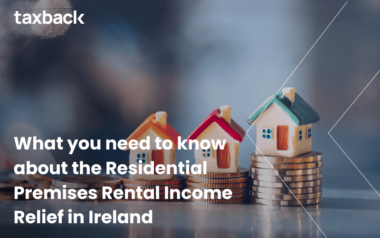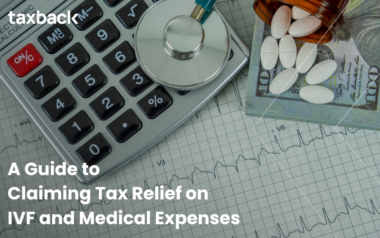A nixer refers to any part-time work that is undertaken where the income is not reported to Irish Revenue.
In recent times there has been much discussion regarding the clampdown on PAYE workers who are not reporting all of their income to Revenue.
After-hours’ work such as consultancy, grinds, nixers, beautician work etc. all must be reported to Revenue to ensure full tax compliance.
Whilst many individuals have escaped being caught, there is always the worry that a hefty fine will be imposed by Revenue at some point should their non-compliant past finally catch up with them.
The self-assessed system has made it much easier to submit your personal details to Revenue.
The following steps show how easy it is to register for tax and submit your tax returns online:
Table of Contents Show
1. TR1 form – income tax registration
This form looks a lot more daunting than it actually is.
A TR1 form allows an individual to register for Income Tax, Employer’s PAYE/PRSI, VAT and other taxes that are applicable.
The first thing a person with additional non-PAYE income must do is to complete this form.
Non-PAYE income can be classified as rental income, dividend income, self-employed income etc. Anyone with non-PAYE income potentially comes within the definition of a “chargeable person”.
You will need to register for self-assessment through the eRegistration service.
There are some exceptions to this depending on income levels. A chargeable person must register for income tax, file a tax return in Ireland and pay taxes to Revenue under the self-assessment rules.
There are certain sections that must be completed.
Part A – General Details: Section A1
This section just asks for basic personal details such as Name, Address, PPS number etc.
Part B – Registration for Income Tax (non-PAYE)
In this section you will select the type of additional income that you are in receipt of.
You will be asked for your bank details – these details are required so that if you are due a tax refund e.g. VAT refund, the money can be transferred directly to your bank account.
Declaration
In this section you are signing to say that all of your details are correct.
The PAYE and VAT sections must be completed if you are required to register for these taxes, for example, if you are an employer or if you need to register for VAT (see below for further details).

2. Invoicing
As a self-employed individual, it is important that you issue an official invoice (bill) for the goods / services that you provide.
Each invoice should give a breakdown of the Gross Cost, VAT and Net Cost.
Generally invoices should include the following details:
- Your address
- Client’s address
- Date
- Invoice number
- Details of the products/services being provided
- Cost
- VAT amount & VAT registration number
- Total amount due, including VAT
- Payment details
We take the hassle out of filing your Irish tax return
3. Expenses
Expenses that are directly related to the day to day costs of providing goods/services are usually allowable for tax purposes – this is known as revenue expenditure.
Allowable expenses include:
- Wages and related costs.
- Utilities such as light, heat etc.
- Rent payable.
- Accountancy fees.
- Machinery/Vehicle running costs.
- Lease payments on certain assets.
Expenses which cannot be reclaimed include:
- Expenses which cannot be linked directly to the business activity i.e non-trade related expenditure.
- Client entertainment expenses i.e. meals, drinks, hotels etc.
- Private personal expenditure.
- Capital expenditure (may qualify for writing down allowance over defined period of time).
Expenses which contain an element of both personal and business use need to be recorded accurately. Examples of such expenses include travel, rent, electricity etc.
Only that proportion that relates solely to the running of your business can be claimed as a tax deduction.
For individuals registered for VAT, it is important to note that you can only reclaim VAT in respect of genuine business related expenditure.
4. VAT
VAT should be charged on the majority of goods and services at the standard rate of VAT currently 23% (see HERE for details on lower rates that may apply).
There is a legal requirement to register for VAT where turnover from the supply of goods exceeds €37,500 in a calendar year and turnover from the supply of services exceeds €75,000 in a calendar year. You can elect to register for VAT if your turnover is below these thresholds.
As part of the record-keeping process, you are required to keep copies of all books, records and documents relevant to the business, including invoices, credit and debit notes, receipts, and accounts, for a period of 6 years from the period to which they relate.
In general, VAT registered taxpayers must file a VAT3 return every 2 months (less frequent filing may be possible depending on your annual VAT liability).
This form must include details of the amount of VAT due and the amount of VAT deductible for the two month period, and must be submitted to Revenue by the 19th day of the month following the end of the two month VAT period.
At the end of the year, you will also be required to submit a RTD (Return of Trading details) form – this is breakdown of Sales and Purchases for the year, including the figures for VAT.

5. Completing your Self-assessed Tax Return
While the process of registering as a self-assessed taxpayer with Revenue has been greatly simplified, and the introduction of the online filing facility via ROS has made it easier for you to file your own tax return and pay your taxes online, the complexities involved in completing your own tax return have increased greatly over the last number of years.
For example, the standard Form 11 tax return has increased from 8 pages in 1998, to 22 pages in 2004, and currently stands at 44 pages!
Did you know that if you open a foreign bank account during a tax year, that you are obliged to report this as a self-assessed taxpayer on your tax return, or you may be deemed to have filed an incorrect return with Revenue.
When faced with the prospect of filing a tax return, one question that most taxpayers will often ask themselves is – should I do my tax returns myself, or should I hire a qualified tax professional?
While it is correct to say that all taxpayers have the option to prepare and file their own tax return with Revenue, there are many advantages to hiring the services of a qualified tax professional to do this for them.

FAQ
What is a nixer?
A nixer is a side job that is not reported on your income tax return.
A lot of people in Ireland choose to work nixers, and these can range on anything from painting and constructon to personal training and dog walking!
Do I need to file a tax return?
Yes!
You must declare all income you make to Revenue.
If you earn less than €5,000 per year from nixers, you can file a Form 12 – however, if you earn more than that in a year, you will need to register with the Revenue Commissioners and file a Form 11.
Who can help me with my tax return?
You can always use a professional like Taxback to help you with your tax return!
How Taxback will help you
Our qualified tax professionals will ensure you are tax compliant with Revenue before the deadline for submitting your tax return.
By ensuring you are tax compliant, you will avoid any late-filing fees and penalties.
We also offer:
- 24 hour support – our chat service isn’t just available during working hours; it is available 24/7 so if you have a query outside of normal business hours, don’t worry – our Chat Team is on hand to provide support
- All self-assessed taxpayers are linked to Taxback as an agent on the Revenue’s Online Service (ROS) – this means that we can contact Revenue on your behalf and deal with all your tax related queries directly with Revenue.
- Affordable price, with clear pricing structure
Last Updated on March 1, 2024








